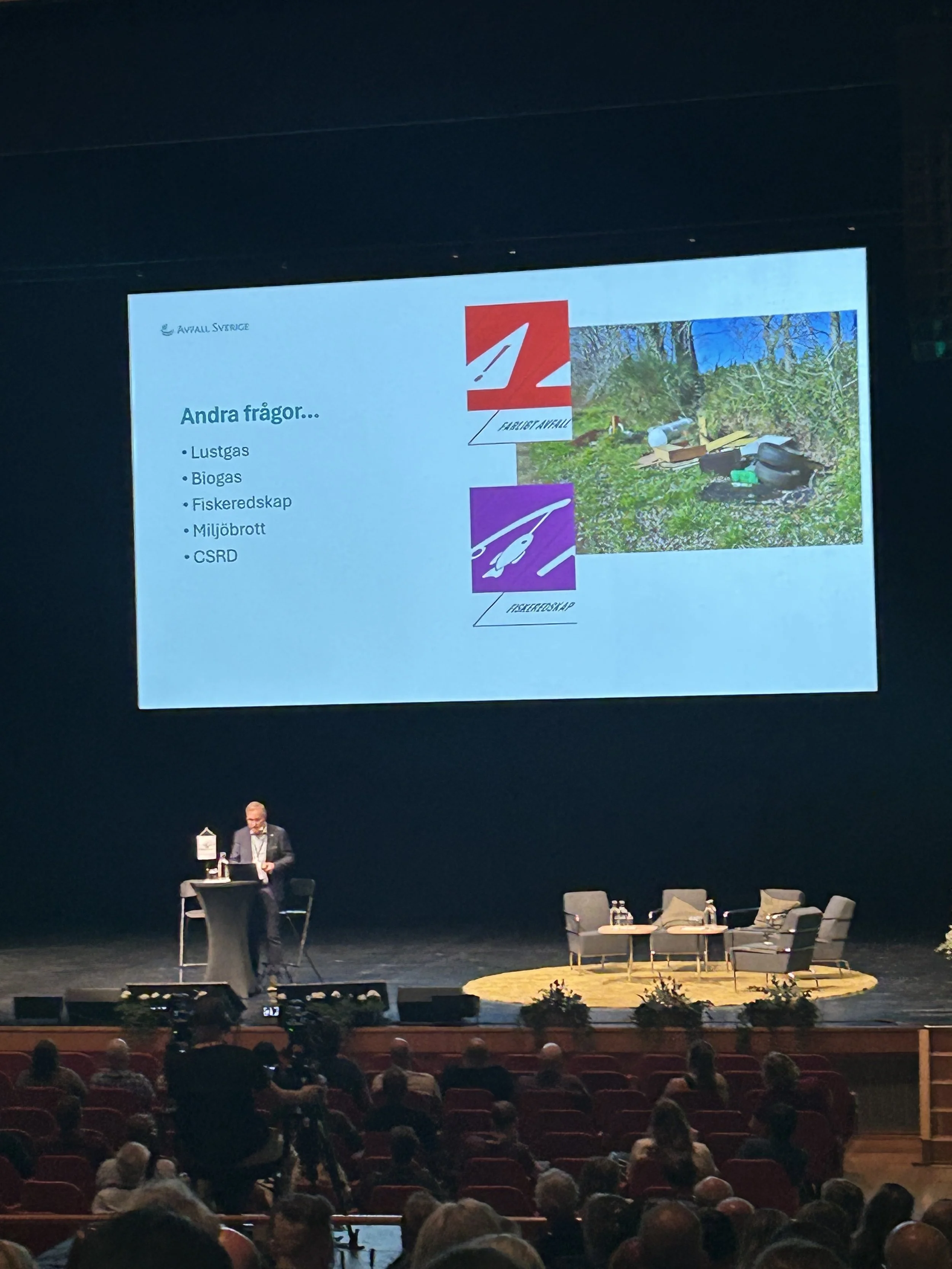Nitrous Oxide – The Hidden Climate Threat in the Recycling Industry
Learnings from the Swedish waste management industry annual spring conference.
On May 20–21, 2025, Avfall Sverige, the Swedish Waste Management and Recycling Association, held its combined Annual General Meeting and Spring Conference in Karlstad, Sweden. The organisation represents Sweden’s municipal waste management authorities and recycling centers, along with private sector members.
Nitrous Oxide waste, also known as laughing gas bottles, was listed on the main stage as one of the key priorities in Avfall Sverige’s focus area presentation.
Nitrous Oxide Takes the Spotlight
Medclair has recently joined as a member, becoming part of the national effort to promote innovation and sustainability in the recycling sector. More than 600 participants gathered to discuss key topics such as sustainability, the circular economy, and challenges facing the recycling industry, with a particular focus on crisis management as the central theme of the event. To our great surprise, Nitrous Oxide waste, also known as laughing gas bottles, was listed on the main stage as one of the key priorities in Avfall Sverige’s focus area presentation at this year’s conference.
This focus on Nitrous Oxide waste was reflected in our conversations throughout the event. During the breaks and mingling sessions, we had the chance to speak with representatives from various cities and municipalities. We asked them about their own experiences and observations of Nitrous Oxide cylinders, whether in their neighborhoods or at local recycling centers, and many confirmed that the issue is becoming increasingly visible.
Legislation in Sight — But Will It Go Far Enough?
Many participants expressed hope that new legislation in Sweden, expected in summer 2025, will prohibit the retail sale of larger Nitrous Oxide canisters. However, some raised concerns that if smaller cylinders remain legal, the problem won’t be fully addressed at the source. There were even calls for a complete EU-wide ban on Nitrous Oxide sales outside of medical use .In the recycling industry, handling Nitrous Oxide cylinders is an escalating issue, for the climate, for workplace safety, and for operational costs.
Firstly, many people do not realise just how powerful a greenhouse gas Nitrous Oxide is. Even small amounts of gas in the air cause major damage as it is nearly 300 times stronger than Carbon Dioxide. If cylinders containing residual gas are incorrectly sorted or damaged, they risk leaking or exploding, leading to emissions and serious safety hazards. Traditional handling also often means costly external processing. Hence, if the transportation, handling or treatment of Nitrous Oxide is not taken care of properly it has impacts on emissions caused, work place safety as well as increased replacement costs budgeting due to risk of high potential to damage infrastructure in recycling stations overall supply chain.
We can help you tackle N2O challenges — effectively and sustainably
Our systems make a measurable difference for recycling facilities by reducing costs, improving operational outcomes, and enhancing safety, all while significantly cutting greenhouse gas emissions.
By destroying Nitrous Oxide directly on-site, our technology eliminates the need for external handling, making your facility cleaner, safer, and more climate-friendly.
What does this mean for your facility?
Zero nitrous oxide emissions — no climate-damaging gas released into the atmosphere
Improved workplace safety — no risk of leaks or explosions
Recyclable cylinders — empty bottles can be sold as scrap metal instead of requiring costly special disposal
Our clients have managed to turn around their former costly N2O bottle handling costs down while having total control of their gas destruction liabilities. As there is a growing interest in sustainable nitrous oxide management, we’re proud to contribute with a solution that is safe, cost-efficient, and climate-smart.
Want to know how we can help you with your Nitrous oxide gas bottles?
Get in touch, we’re happy to discuss the best solution for your needs.

